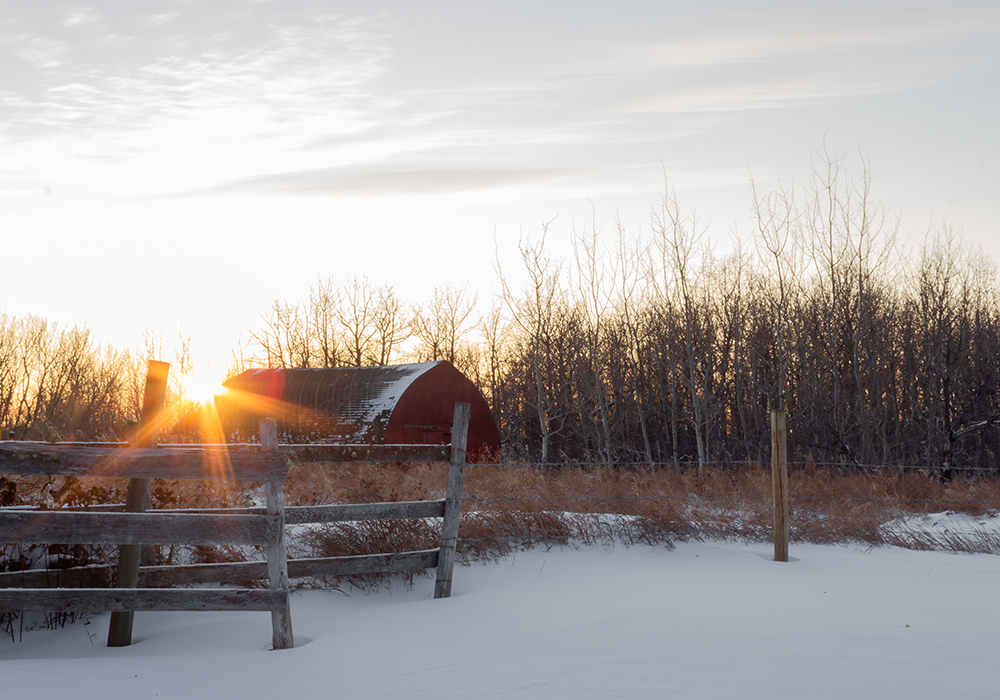Previously, I wrote about bare trusts in the new trust disclosure rules and the T3 trust return filing. In that article, I alluded to another new set of rules that loop in certain bare trust relationships. These new rules are contained in federal legislation called the Underused Housing Tax Act or UHTA.
A bare trust is a trust relationship characterized by the following hallmarks:
1. The trustee holds legal title to property and has no other powers, duties or responsibilities in relation to the trust property.
Read Also

Kochia has become a significant problem for Prairie farmers
As you travel through southern Saskatchewan and Alberta, particularly in areas challenged by dry growing conditions, the magnitude of the kochia problem is easy to see.
2. The settlor is the sole beneficiary of the bare trust and retains the right to control and direct the trustee in all matters relating to the trust property.
Bare trust – the family home
Often, spouses hold title to their family home as joint tenants. In such instances, on the death of the first spouse, there is no need for probate in relation to the family home because title to the family home moves to the surviving spouse by right of survivorship.
At this time, the surviving spouse is the sole owner of the family home.
When that surviving spouse passes away, the executor of the estate will need to obtain letters of probate to deal with the family home. In Saskatchewan, probate fees are $7 for every $1,000 of value passing through the estate. Therefore, if the family home, for example, was worth $500,000, the probate fees in relation to the family home would be $3,500.
A common strategy for that last surviving spouse to avoid or reduce probate fees on their death is to place the family home into joint tenancy with one or more adult children. In doing so, the intention is typically that the parent remain the true beneficial owner of the family home during his or her lifetime, and that the adult children are only put on title to minimize the fees and costs associated with probate.
By adding the adult child or children as a joint owner of the family home, the parent has likely created a bare trust. The individuals on registered title to the family home are the trustees (parent and adult children). The parent is also the settlor and sole beneficiary. The adult child’s only function is to hold legal title to the family home and can take no action in relation to the family home without instructions from the parent as the beneficial owner of the family home.
For example, if the parent directs that the family home be sold to a third party, the adult child’s sole duty is to convey legal title to the family home in accordance with the instructions provided by the parent. The net sale proceeds arising from the sale of the family home would be entirely for the benefit of the parent as the beneficial owner.
Underused Housing Tax Act
The UHTA is federal legislation that took effect Jan. 1, 2022. The UHTA imposes a one percent annual tax on the value of vacant or underused Canadian residential property held by certain non-Canadian owners.
What the UHTA did prior to the 2023 Fall Economic Update: Notwithstanding that the purported intent of this legislation was to tax underused residential properties held by certain non-Canadian owners, the original iteration of the UHTA casts a much broader net as to the filing obligation, notwithstanding that the filers may be exempt from the actual tax imposed by the legislation.
As a result, various Canadian owners will have a filing obligation, including certain trustees, even though no tax may be payable.
Notably, even if no tax is payable, the minimum penalty for failing to file a UHTA return is $5,000 for individuals for each missed filing. As part of the transitional period, for the 2022 calendar year, owners of residential properties affected by the UHTA will have until April 30, 2024, to file their UHTA return without being charged penalties or interest. Thereafter, the UHTA return will be due by April 30 of the following year.
Under the UHTA, there are many pathways of ownership of residential properties that lead to a filing obligation. However, this article only touches on the bare trust relationship described in the example above about the family home.
Carrying on with the family home, let’s say mom added two adult children (all Canadian citizens) to title to the family home for probate planning purposes. As a result, mom and both children are on registered title in the Land Titles Registry. During mom’s lifetime, she remains the sole beneficial owner of the home. As noted above, this is a bare trust relationship.
Under the UHTA, an “excluded owner” does not need to file a return. An excluded owner includes an individual who is a Canadian citizen or a permanent resident of Canada, except for an individual who holds an interest in the property as a trustee of a trust.
For the purpose of the UHTA, in our example the Canada Revenue Agency considers only the two children to be trustees. Therefore, both children need to file a UHTA return in relation to mom’s family home for the applicable calendar year.
Additionally, both children must pay the tax for their ownership percentage of the residential property for the calendar year, unless their ownership of the residential property is exempt from the tax for the calendar year. If the trust is a “specified Canadian trust”, the trustee’s ownership may be exempt from the tax.
In our example, the bare trust qualifies as a specified Canadian trust because mom, as the only beneficial owner, is an excluded owner by way of being a Canadian citizen. Therefore, mom’s two children (as trustees) are exempt from the actual tax, but still subject to the filing obligation, each subject to a $5,000 penalty for failing to file in any year. Frankly, the requirement to file in this situation is an outrageous result.
UHTA post-fall economic update: The federal government released its Fall Economic Statement on Nov. 21. Buried near the end of the report, the federal government is scaling back on some of the over-reach of the original iteration of the UHTA rules.
Should we be thankful? Well, considering the time, effort, energy and expense by tax professionals and their clients across this country that has gone into analyzing this legislation, trying to determine whether it applies and actually doing the filing for the 2022 calendar year prior to the shifting deadlines, Canadians should be more annoyed than anything that our federal government did not put more effort into getting the legislation right in the first place.
Based on the fall economic statement, trustees of a “specified Canadian trust” will be considered excluded owners and no longer have filing obligations under the UHTA. This change would apply in respect of 2023 and subsequent calendar years. The $5,000 penalty for individuals that fail to file will be dropped to $1,000. This change would apply in respect of 2022 and subsequent calendar years.
If we circle back to our example of mom and two children and the family home, for the 2022 calendar year, the filing obligation on the two children, as trustees, still exists, but with a $1,000 penalty if they fail to file. For the 2023 calendar year, the two children will no longer have any filing obligation under the UHTA.
This article only focused on a narrow element of the UHTA: a bare trust in circumstances of probate planning around the family home. Depending on your circumstances, there may be other pathways that cause you to fall within the reach of the UHTA. I encourage you to talk to your advisers.
Jessi Brockman is a lawyer with Stevenson Hood Thornton Beaubier LLP in Saskatoon. She can be contacted at jbrockman@shtb-law.com. This article is provided for general informational purposes only and does not constitute legal or other professional advice.















